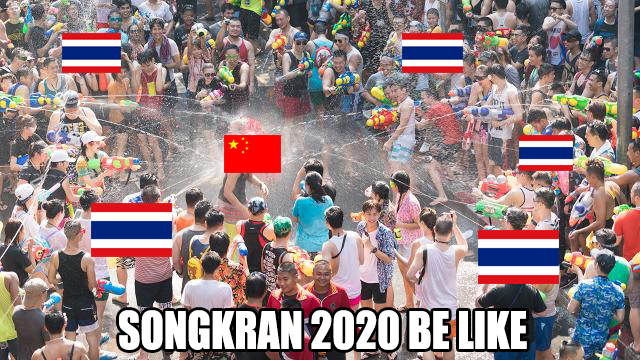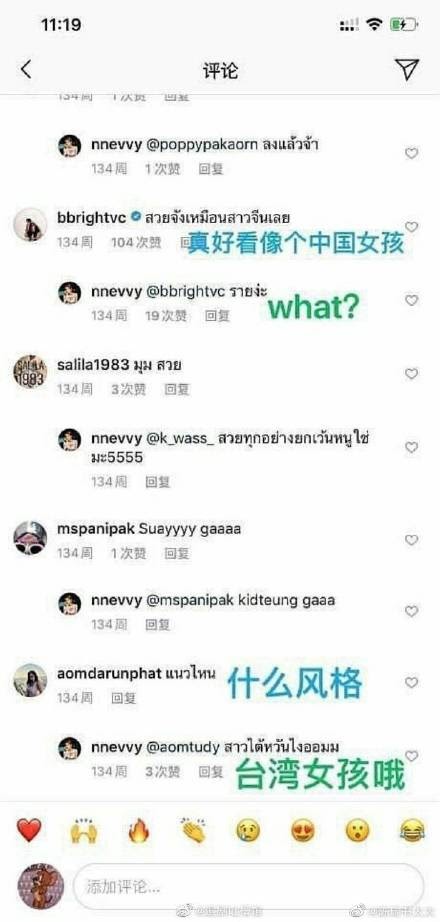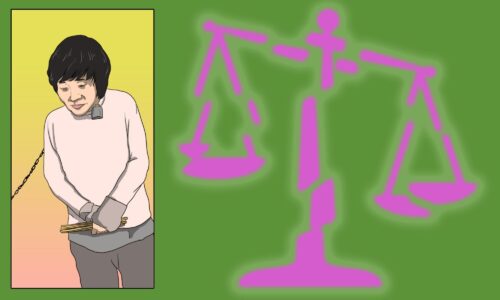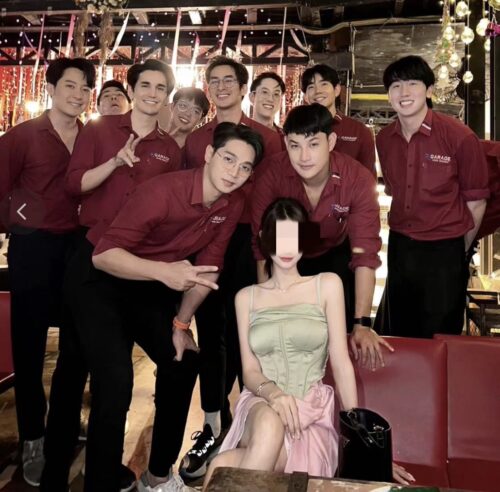Chinese nationalists and Thai meme-creators face off on Twitter
When Thai actor Vachirawit Chivaaree retweeted a photo of Hong Kong last week, he didn’t intend to set off a Thai-China political dispute. But what happened next was one part dystopian sci-fi, and one part a regular occurrence in the age of Chinese nationalist trolls: They attacked. He apologized. And a bizarre sequence of events happened.

When Thai actor Vachirawit Chivaaree retweeted a photo of Hong Kong last week, he didn’t intend to set off a Thai-China political dispute. But what happened next was one part dystopian sci-fi, and one part a regular occurrence in the age of Chinese nationalist trolls: They attacked. He apologized. And a bizarre sequence of events happened.
Here’s how the saga unfolded.
How did Vachirawit rile up the Chinese internet?
It all started with a tweet from Vachirawit Chivaaree, a Thai-American actor who is also known as Bright. On April 9, the pop star showed appreciation for a since-deleted tweet that included photos of skylines in four locations around the world and a caption saying that the images were taken in “four countries,” one of which was Hong Kong.
After a Chinese internet user shared a screenshot of the retweet on Weibo, a torrent of criticism slammed him for disrespecting China’s national sovereignty by suggesting that Hong Kong was not part of China.
As the original post made the rounds on Weibo, the Japanese photographer who took the images apologized for his “lack of caution talking about Hong Kong” in a tweet on Thursday. He wrote: “To be honest, the caption wasn’t meant to imply any political stance in this conflict. I’m an outsider with no knowledge in this matter, and I only know HK as a beautiful place to be.”
Thanks for all the engagement! I do apologize for my lack of caution talking about HK. To be honest, the caption wasn't meant to imply any political stance in this conflict. I’m an outsider with no knowledge in this matter, and I only know HK as a beautiful place to be. (1)
— ซานยามะ 𝕏 zanyama (@zanyama_) April 9, 2020
Later that day, Bright replied on the same thread, saying that the controversial retweet was a “thoughtless” move on his part because he didn’t read the caption. “Next time there will be no mistake like this again,” he said.
While most Chinese critics found Bright’s swift apology convincing, the actor’s girlfriend, who goes by the name New, loudly inserted herself into the saga on Friday. She retweeted a popular COVID-19 conspiracy theory that China invented the virus in a lab in Wuhan, where the outbreak originated. The post shared by New also accused China of shifting blame for the emergence of the disease to the U.S., and hiding information regarding the outbreak by denying entry to foreign journalists.
Meanwhile, some dug out an old Instagram exchange between Bright and New, where the actor complimented a photo of his girlfriend in Taiwan, saying that she looked like a “cute Chinese girl.” Seemingly unhappy about the comment, New replied, “This is Taiwanese girl style.”

What is #nnevvy?
New’s remarks were seen as an affront to the P.R.C. by a vast number of people on the Chinese internet, who rallied around hashtags such as #Bright’s girlfriend insulted China (in Chinese) to condemn her and call for a boycott of 2gether: The Series, a Thai drama that features Bright and is currently on air.
An army of Chinese nationalists also made their way to Twitter, which is blocked in China, to demand a public apology from New. Using the hashtag #nnevvy, which was New’s Twitter handle, legions of Chinese trolls flooded the platform with abusive and vicious comments about her. In addition to personal attacks, some also leveraged the controversy to spew out vitriolic, violent, and flat-out racist comments about Thai people and their government.
When it comes to international social networks, bullying their opponents into submission and silencing criticism has been a common and mostly effective tactic employed by Chinese nationalist trolls. But this strategy didn’t translate well to the #nnevvy saga, where Thais who came to New’s defense masterfully handled the trolls with a meme-fueled online campaign targeting aggressive Chinese nationalists.
We support Thailand #nnevyy
Thai rice is delicious. We all love to eat 🤤 pic.twitter.com/ltpYp10C0K
— Luilui💛 (@LouisePoon) April 13, 2020
faltered #nnevyy pic.twitter.com/3fXIEOzr3W
— SirThisWay🇭🇰🇭🇰 (@sirsirthisway) April 13, 2020
https://twitter.com/Bho_silly/status/1249783052043038720
It's another sad story[sobbing]#nnevyy pic.twitter.com/hn9TZprFpe
— _gre😷 (@gre_intlmds) April 13, 2020
Note: NMSL is Chinese internet slang for “Your mom died” (你妈死了 nǐ mā sǐle), which Chinese internet trolls often use as an insult.
this really makes my day🤣🤣🤣🤣#nnevyy pic.twitter.com/NPuX5UWypB
— Daisy Lee (@ting_tsz) April 13, 2020
https://twitter.com/Silence21240183/status/1249685872506580993
https://twitter.com/hksummer2019/status/1249666565114605568
I cried [sobbing sobbing sobbing]
Brainless NMSLESE are just so sadddddddd😭😭😭😭#nnevyy pic.twitter.com/wzmiWNPORh— _gre😷 (@gre_intlmds) April 13, 2020
https://twitter.com/ShawTim/status/1249643502406754304
What’s the latest?
Ironically, one thing that confused the Chinese trolls in Thais’ responses was their lack of patriotism. When confronted with criticism about the Thai government, New’s supporters not only showed sheer indifference, but they also in some cases leaned into the attacks against their own authorities. After realizing that such tactics didn’t do anything for Thais, the Chinese nationalists have adopted a different approach to tamp down voices of their enemies.
In a popular post (in Chinese) on social media, the author encouraged Chinese internet users to report Thais who wrote critical comments about their own government to the cybersecurity office of Thai police. “I found that these Thais wouldn’t get hurt by any attacks,” the author said. “They love self-deprecation. They are sick! Let’s report them to the police.”
So far there’s no end in sight to the saga as both camps are still fervently exchanging jabs on social media. On the Chinese side, angry Weibo users have been urging the public to boycott tourism to Thailand. In response, the Tourism Authority of Thailand wrote a Weibo comment (in Chinese) on April 12, saying that remarks by a Thai celebrity was by no means an indication of Thai authorities’ position. “Please stay rational,” the government said.






